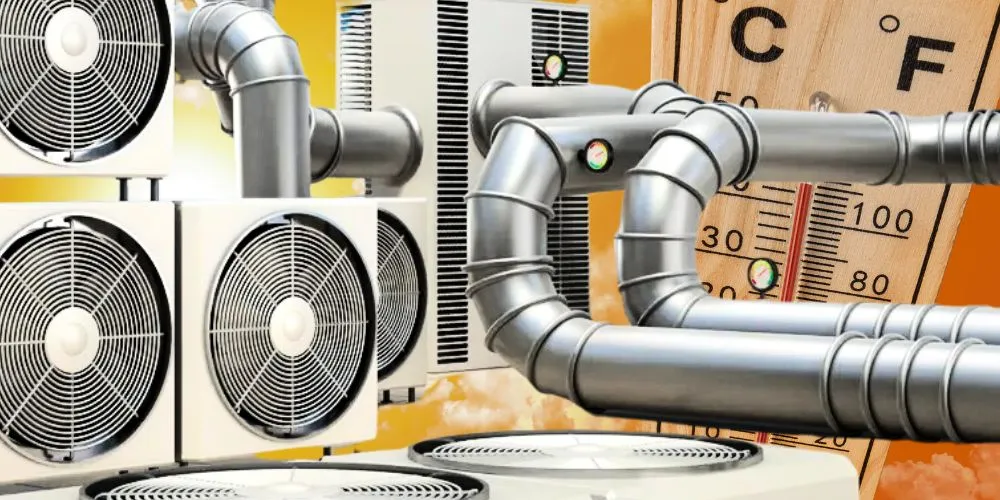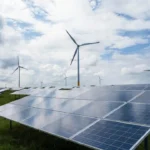Energy-efficient HVAC (Heating, Ventilation, and Air Conditioning) systems have emerged as critical components of building design. They ensure comfort while reducing energy consumption and environmental impact. These systems are pivotal in creating sustainable and efficient indoor environments in an era of paramount energy conservation and environmental responsibility. This comprehensive exploration delves into energy-efficient HVAC systems, uncovering their significance, applications across various sectors, and transformative potential for a more sustainable future.
The Significance of Energy-Efficient HVAC Systems
Energy-efficient HVAC systems represent a fundamental shift in how buildings are designed, heated, and cooled. They provide a pathway to maintain comfortable indoor temperatures while minimizing energy consumption, reducing greenhouse gas emissions, and lowering operational costs. This shift towards efficient HVAC systems carries substantial implications, from improving indoor air quality to enhancing building sustainability.
Energy Savings
One primary benefit of HVAC systems is significant energy savings. These systems employ advanced technologies and design principles to optimize heating and cooling processes. They reduce energy waste by adjusting ventilation rates, utilizing energy recovery systems, and incorporating energy-efficient components. The result is lower utility bills and reduced environmental impact, making energy-efficient HVAC systems a win-win for building owners and the planet.
Indoor Comfort
The systems are designed to enhance indoor comfort. They maintain consistent temperatures, humidity levels, and air quality, ensuring occupants experience a comfortable environment year-round. These systems employ smart controls and zoning strategies to customize comfort settings based on occupancy and user preferences, providing a personalized and pleasant indoor experience.
Environmental Sustainability
Energy-efficient HVAC systems are pivotal in advancing environmental sustainability. By reducing energy consumption and emissions, they align with global efforts to mitigate climate change and minimize buildings’ carbon footprints. Sustainable HVAC practices also include using renewable energy sources, such as solar thermal or geothermal systems, to reduce environmental impact further.
Techniques in Energy-Efficient HVAC Systems
Energy-efficient HVAC systems encompass various techniques and innovations for optimizing heating, ventilation, and air conditioning processes.
Variable Refrigerant Flow (VRF) Systems
VRF systems are cutting-edge technology that precisely controls heating and cooling. These systems use variable-speed compressors to modulate refrigerant flow based on load requirements. VRF systems offer zoned heating and cooling, allowing different building areas to be conditioned individually. They reduce energy consumption by avoiding over-conditioning unoccupied spaces.
Energy Recovery Ventilation (ERV)
Energy recovery ventilation systems capture and exchange heat and humidity between incoming and outgoing air streams. This technology preconditions fresh outdoor air with the energy in the exhaust air, reducing the need for additional heating or cooling. ERV systems improve indoor air quality while reducing energy usage in HVAC operations.
Smart Building Automation
Smart building automation integrates sensors, controls, and data analytics to optimize HVAC operations. These systems continuously monitor temperature, occupancy, and environmental conditions and adjust HVAC settings in real-time. Smart HVAC control systems ensure energy efficiency while maintaining occupant comfort.
Applications of Energy-Efficient HVAC Systems
Energy-efficient HVAC systems find applications across diverse sectors, each benefiting from improved comfort and sustainability.
Commercial Buildings
The systems significantly benefit commercial buildings. They are essential for optimizing indoor comfort in office spaces, retail establishments, and hospitality venues. Additionally, they contribute to energy cost savings and support businesses in achieving sustainability goals.
Healthcare Facilities
Energy-efficient HVAC systems are critical in healthcare facilities where indoor air quality and temperature control are paramount. These systems help maintain sterile environments, improve patient comfort, and reduce energy costs. They also support infection control measures by providing proper ventilation.
Residential Homes
Energy-efficient HVAC systems are increasingly popular in residential construction. Homeowners benefit from lower utility bills, improved indoor comfort, and reduced environmental impact. Modern homes are designed with efficient insulation and HVAC systems to ensure year-round comfort and efficiency.
Challenges and Ethical Considerations
While energy-efficient HVAC systems offer numerous benefits, they also present challenges and ethical considerations that require careful attention.
Initial Costs
HVAC systems often have higher upfront costs than traditional systems. While the long-term energy savings typically outweigh the initial investment, affordability, and access to these systems can be barriers for some building owners. Ethical considerations involve making energy-efficient HVAC technology accessible to various building types and income levels.
Maintenance and Training
Energy-efficient HVAC systems may require specialized maintenance and skilled technicians for installation and servicing. Maintenance and training must be available and affordable to maximize their longevity and efficiency. Ethical considerations include investing in workforce development and ensuring that building owners have access to qualified service providers.
Environmental Impact of Refrigerants
Some energy-efficient HVAC systems use refrigerants with lower global warming potential (GWP) than traditional refrigerants. However, the environmental impact of refrigerants remains a concern. Ethical considerations involve selecting refrigerants with the lowest GWP, minimizing leaks, and properly disposing of old equipment to prevent environmental harm.
The Future of Energy-Efficient HVAC Systems
Energy-efficient HVAC systems are poised to play an even more substantial role in shaping the future of building design and operation, fostering sustainability, comfort, and resilience.
Integration with Renewable Energy
Integrating energy-efficient HVAC systems with renewable energy sources will further reduce buildings’ carbon footprint. Solar panels, wind turbines, and geothermal systems can deliver clean energy to power HVAC operations, creating zero-emission buildings.
Advances in Building Materials
Advances in building materials will complement energy-efficient HVAC systems. Highly insulated building envelopes and smart glass technologies will reduce heat gain and loss, minimizing the workload on HVAC systems. Building materials will be designed with energy efficiency in mind, creating sustainable and comfortable spaces.
Enhanced IoT and AI Integration
The Internet of Things (IoT) and artificial intelligence (AI) will be central in optimizing energy-efficient HVAC systems. IoT sensors provide real-time data on occupancy and environmental conditions, while AI algorithms continuously adjust HVAC settings for maximum efficiency and comfort.
Conclusion
Energy-efficient HVAC systems are not just about heating and cooling; they transform buildings into sustainable, comfortable, and resilient spaces. Their significance lies in their capacity to reduce energy consumption, improve indoor comfort, and minimize environmental impact. As energy-efficient HVAC systems continue to evolve, ethical considerations, affordability, and sustainability must guide their development and implementation.
They envision a future where buildings are efficient, comfortable, and environmentally responsible, occupants enjoy a high quality of life, and the planet is protected for future generations. Energy-efficient HVAC systems are the key to unlocking new possibilities in building design and sustainability—one degree at a time. With energy-efficient HVAC systems, we can create a future where every building is a beacon of efficiency and comfort, contributing to a more sustainable and resilient world.





